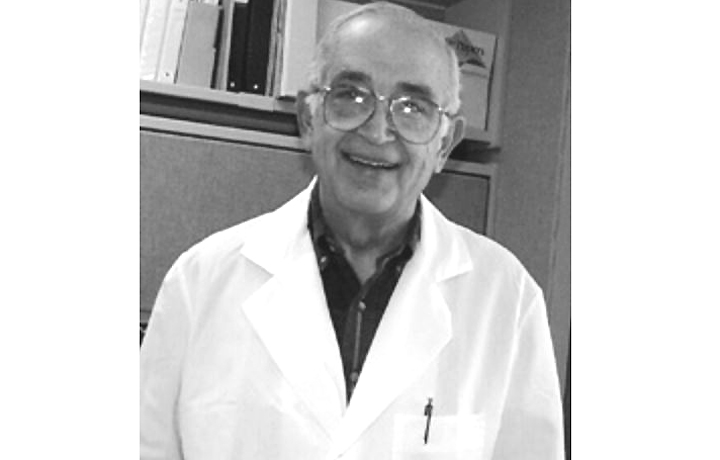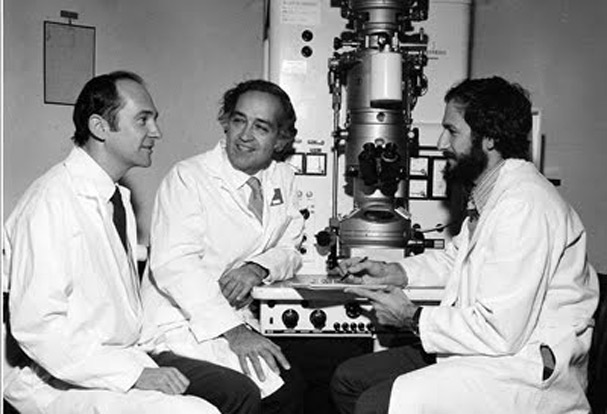Remembering a Legend in Virology: Dr. Albert Kapikian Discoverer of Norwalk Virus
- (0)

The Father of Human Gastroenteritis Virus Research
Dr. Albert Z. Kapikian, M.D., a pioneering virologist at the National Institutes of Health was called the father of human gastroenteritis virus research for his work on improving the understanding and prevention of viral diseases that affect the gastrointestinal tract. In 1972, he identified the first norovirus, initially called Norwalk virus. Noroviruses are now recognized as a major cause of epidemic diarrhea in adults worldwide. In 1973, Dr. Kapikian and his colleagues identified the hepatitis A virus. He also was the first scientist in the United States to detect human rotavirus, which had been discovered by others in Australia. He dedicated himself to studying this leading cause of severe diarrhea in children, which accounts for more than 400,000 deaths annually, mostly in developing countries.
Dr. Kapikian and his research group defined the mode of transmission of rotavirus, identified the viral proteins critical for triggering an immune response, and formulated a vaccine that targeted several important rotavirus strains. These efforts ultimately led to the development, testing and approval by the Food and Drug Administration in 1998 of the first rotavirus vaccine. Subsequently, Dr. Kapikian headed the development of second-generation rotavirus vaccines that have been licensed by pharmaceutical companies in Brazil, China, and India. He also contributed to ongoing efforts to improve rotavirus vaccines and expand their use in the developing world.
His dedicated research into the identification of viruses earned him recognition as “the father of human gastroenteritis virus research” and his extensive body of work would pave the way for many scientists in the field, including those in the NoroCORE Collaborative.
Dr. Kapikian was the chief of the epidemiology section of the Laboratory of Infectious Diseases at NIH’s National Institute of Allergy and Infectious Diseases (NIAID), a position he held for 45 years.
He received his medical degree from Cornell University Medical College in 1956 and joined NIAID in 1957. His numerous accomplishments earned him the Albert B. Sabin Gold Medal, the Maurice Hilleman/Merck Award of the American Society for Microbiology and the Children’s Vaccine Initiative Pasteur Award, among many other honors.
Albert Kapikian was born in New York City in 1930 to Armenian immigrants who had made their way to Ellis Island following escape from genocide in their homeland. The family thrived in the United States, with son Albert graduating from Queen’s College in 1952 and Cornell Medical College in 1956. Al left New York in 1957 and began working with rising luminaries in infectious diseases at the NIH, when the technique of cell culture was forging new frontiers in virology.
Dr. Albert Z. Kapikian, MD, a pioneer in the field of virology, passed away on February 24, 2014 at the age of 83.

Developing the World’s First Licensed Hepatitis A Vaccine
Dr. Albert Kapikian (middle) first identified the hepatitis A virus (HAV) in 1973. His groundbreaking work led to development of the first licensed HAV vaccine. (Photo: NIAID)


















